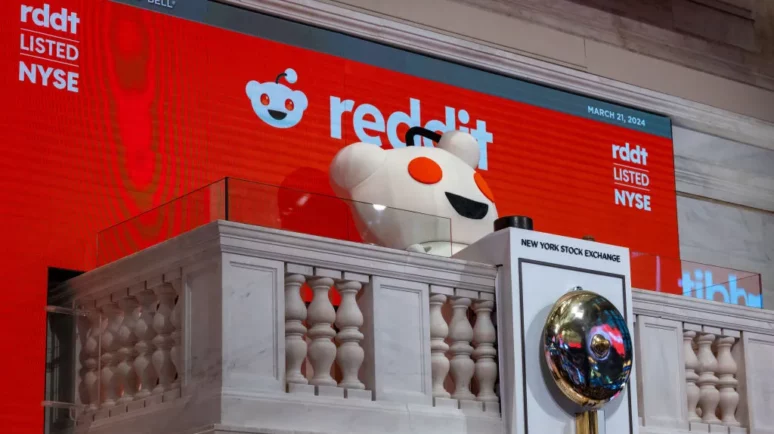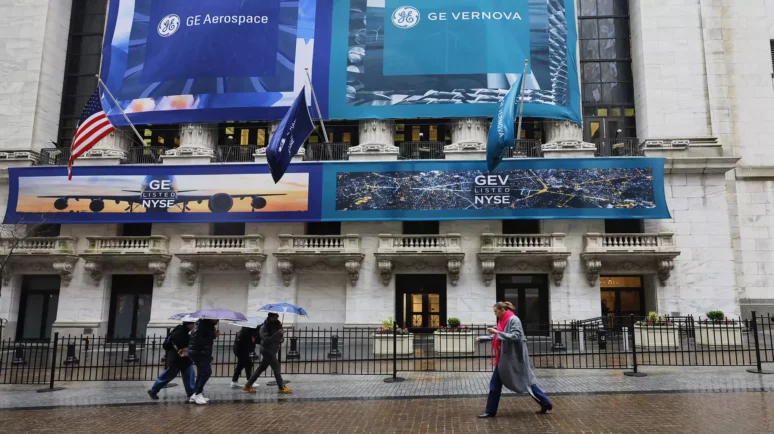Atos Seeks $1.2 Billion To Restructure: What Went Wrong For France’s Biggest IT Company?

The embattled French IT company Atos is seeking $651 million to fund the business through 2025. What went wrong for the tech giant? l Source: Joan Cros/NurPhoto via Getty Images
Key Takeaways
- French IT giant Atos faces a significant financial crisis due to high debt.
- It has submitted a restructuring plan to its shareholders.
- A series of setbacks have eroded nearly €12 billion in market value
The troubled French IT company, Atos is seeking €600 million ($651 million) in cash and an additional €600 million in credit lines and loan guarantees to sustain its operations through 2025, as outlined in a restructuring plan presented to creditors.
Once hailed as a frontrunner in the EU’s tech landscape, Atos now faces significant challenges stemming from a difficult debt situation, which has accumulated over the years.
The Restructuring Plan
Atos aims to reduce its debt by €2.4 billion by 2026 while seeking to extend its remaining debt maturities by five years. The company is also targeting at least €1 billion in fresh funds and aiming to halve its debt burden.
Once hailed as France’s tech industry standout, Atos now grapples with a daunting debt load and limited options for debt reduction. With approximately €4.7 billion in debt, €3.65 billion of which is due by the end of next year, the company faces significant challenges. Negotiations with potential buyers like Czech billionaire Daniel Kretinsky’s EPEI and Airbus have faltered .
Atos has invited existing shareholders and third-party investors to submit financing proposals for debt or equity by April 26. Meanwhile, the company has secured €400 million in interim financing from a consortium of banks and bondholders. This was supplemented by an additional €50 million from the French State, which will acquire a strategic interest in its supercomputer business.
However, CEO Paul Saleh cautioned that new funds could dilute current shareholders if the financing takes the form of equity.
How Did Atos Arrive At This Point?
Over the past seven years, Atos’s shares have plunged by over 97%. A series of setbacks, including supply chain constraints, accounting errors, profit warnings, and broader industry challenges, have collectively eroded nearly €12 billion in market value.
To restore a BB credit rating profile by 2026, Atos faces an uphill battle after S&P Global Ratings downgraded its debt to B-. This move positioned it six steps into junk territory. Presently, all of Atos’ debt remains unsecured, though the extent of creditor security may hinge on forthcoming proposals.
Some observers attributed Atos’s woes to former CEO Thierry Breton. Christian Nicol, co-president at UDAAC, a consortium of small Atos investors, criticized Breton’s acquisition strategy. He cited deals like the purchase of Syntel for $3.4 billion despite its revenue being less than a third of that figure.
Investments like these have contributed to Atos’s hefty debt burden, reaching €2.3 billion as of June 2023. Catherine Berjal, co-founder at CIAM, a hedge fund with Atos interests, attributes broader missteps to former CEO Breton’s delayed entry into cloud computing and onshore deals with companies like Siemens, diverging from competitors’ cost-effective offshore strategies.
However, challenges surpass Breton’s tenure. Experts lament a pervasive culture of incompetence at the company’s helm, leading to frequent leadership changes. Despite Breton’s smooth transition to EU commissioner in 2019, Atos has had four CEOs in less than two years – a period marked by tumultuous tenures and criticisms of inadequate disclosures under former chairman Bertrand Meunier.
Berjal suggested this ineptitude arises from France’s elitist corporate culture, where executives ascend from prestigious schools to boardrooms without fully grasping their roles’ complexities.
Crucial For France
French Prime Minister Gabriel Attal has personally intervened in the affairs of Atos. This is because the company has deep connections to France’s military and nuclear sectors. Attal emphasized that Atos’s strategic endeavors, such as providing cybersecurity for the upcoming Paris Olympics, must remain under French control. Addressing lawmakers, Attal reiterated the government’s commitment to ensuring Atos’s financial stability.
The French government will use “all the means at its disposal” to preserve Atos’ strategic activities, Finance minister Brune Le Maire said . “We will not abandon Atos’ industrial activities, which represent tens of thousands of jobs.”
The government’s position is to ensure that Atos’ strategic assets “remain in French hands,” whatever the cost, according to Les Echos.
Meanwhile, efforts to devise alternative rescue strategies are underway. Atos’s largest shareholder, Onepoint, announced that investment firm Butler Industries will join a consortium to salvage the company. According to a statement, the group’s objective is to safeguard and maintain all of the company’s assets.
Billionaire Daniel Kretinsky is considering a renewed takeover bid for certain segments of Atos. This is contingent upon the outcome of the restructuring and refinancing plan.


